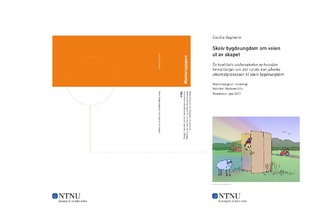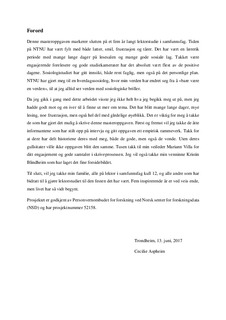| dc.description.abstract | Norway is one of the most liberal countries in the world on the topic of gay liberation. All though Norway has come a long way with the legal rights for queer people, there seems to be an understanding among the Norwegian citizens, that the quality of queer lives is dependent on whether they live in urban or rural areas. The aim of this study is to investigate how rural youth experience the process of coming out as queer. I investigate how their experiences of the social dimension in rural areas can have effects on their time in the closet, expectations to emerge as queer, and the reactions they received when they came out. The empirical contribution of the study is discussed against sociological concepts, such as social constructivism, identity, self-presentation, social fields and social places, masculinity and heteronormativity. The main research question is: In which ways does conceptualizations of rural areas have an impact on the rural youth in their process with coming out as queer? The data I present in this study is retrieved in qualitative interviews with eight young people, both men and woman, that have grown up in rural areas. The research shows that rural youth generally experience the village as a safe place to grow up, but also a place characterized by social control. The social control they experience has consequences for their process of coming out as queer, because they fear negative reactions from the local community. It also affects them to hide their sexual identity for several years using different strategies, and suppressing their own sexual orientation. When the rural youth came out as queer, they mostly experienced positive reactions among friends and family. For some of the rural youth, the “coming out” was in some situations perceived as negative, which has strengthened their negative view of the village. The picture the rural youth paint of rural areas is both made up of their own experience, and common conceptualizations of rural areas. Because there is a noticeable contrast between their fear of coming out, and the positive reactions they receive, I argue that the general conceptualization of rural places play a more significant role in their fear of coming out, than the actual social dimension found in their hometowns. | nb_NO |

